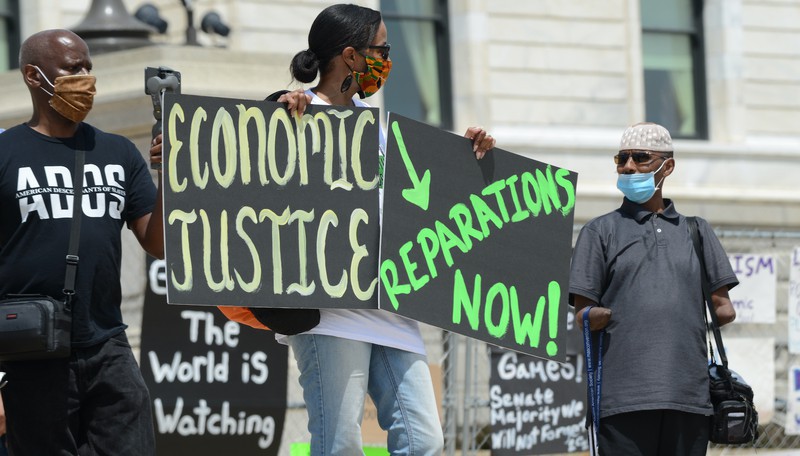Ongoing series looks at varied effort reparations could require

FIBONACCI BLUE C.C. 2.0 GENERIC LICENSE
For more than three years now, KQED has been reporting on reparations as part of an ongoing series, showing just how multi-faceted of effort will be required to address systemic racism in California.
As the series has shown since its first entry in October 2020, making reparations isn’t just about cutting a check to people who can prove their ancestors were enslaved in the United States.
The most recent entry in KQED’s series notes a sobering deadline fast approaching: Dec. 31 for people who were sterilized without their consent in a California prison to receive up to $15,000 in compensation, based on a 2021 law. They and other people who were forcibly sterilized in places like state hospitals in California have been difficult to find. Fewer than 500 of the more than 20,000 people who’ve endured this since 1900 or their descendants have received compensation.
“Finding people, getting them to come forward and reaching people is challenging,” UCSF associate professor Dr. Jennifer James told KQED. “Systems and medical records were not quite what they are today as they were in 1920. Records weren’t always kept or weren’t kept well, and the whereabouts of those records are unclear.”
Other recent entries in the series look at other potential nuances of the discussion around reparations.
On Sept. 13, KQED noted that a bill S.B. 593 from Sen. Scott Wiener would fund the construction of nearly 6,000 affordable housing units that were destroyed in San Francisco due to mid-20th century urban renewal efforts.
“It was just a horrific situation and San Francisco has a legal responsibility to replace the homes that were destroyed when redevelopment ended a decade ago,” Wiener told KQED.
Meanwhile, an Aug. 1 entry in the series addressed how Black people had their land stolen from them in California.
This included Willa and Charles Bruce who had their oceanfront resort, Bruce’s Beach seized by the city of Manhattan Beach through eminent domain to build a park in 1924. It took until June 2022 for the land to be returned to the family, which then sold the land to Los Angeles County in exchange for $20 million.
These stories and more form the basis of an important journalistic series.
To read the series: https://www.kqed.org/reparations
Articles which extol the virtues of a report or article put out by a local newsroom.